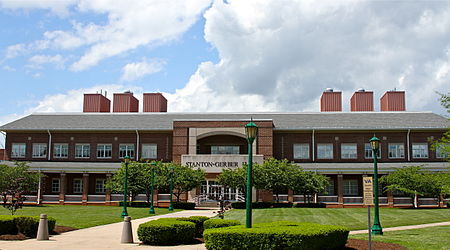
Johnson City is a city in Washington, Carter, and Sullivan counties in the U.S. state of Tennessee, mostly in Washington County. As of the 2020 United States census, the population was 71,046, making it the eighth largest city in Tennessee. Johnson City is the principal city of the Johnson City Metropolitan Statistical Area, which covers Carter, Unicoi, and Washington counties and had a combined population of 200,966 as of 2013. The MSA is also a component of the Johnson City–Kingsport–Bristol, Tennessee–Virginia Combined Statistical Area – commonly known as the "Tri-Cities" region. This CSA is the fifth-largest in Tennessee with an estimated 500,530 residents.
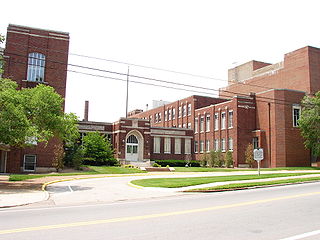
Meharry Medical College is a private historically black medical school affiliated with the United Methodist Church and located in Nashville, Tennessee. Founded in 1876 as the Medical Department of Central Tennessee College, it was the first medical school for African Americans in the South. This region had the highest proportion of this ethnicity, but they were excluded from many public and private segregated institutions of higher education, particularly after the end of Reconstruction.
Stanford University School of Medicine is the medical school of Stanford University and is located in Stanford, California. It traces its roots to the Medical Department of the University of the Pacific, founded in San Francisco in 1858. This medical institution, then called Cooper Medical College, was acquired by Stanford in 1908. The medical school moved to the Stanford campus near Palo Alto, California, in 1959.

Ned Ray McWherter was an American businessman and politician who served as the 46th Governor of Tennessee, from 1987 to 1995. Prior to that, he served as Speaker of the Tennessee House of Representatives from 1973 to 1987, the longest tenure as Speaker up to that time.
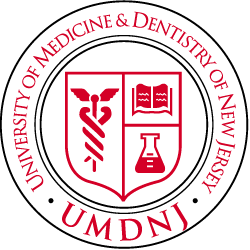
The University of Medicine and Dentistry of New Jersey (UMDNJ) was a state-run health sciences institution of New Jersey, United States.
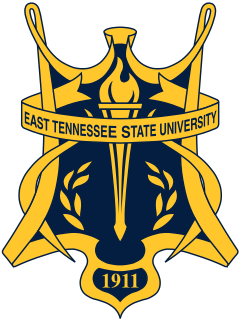
East Tennessee State University (ETSU) is a public research university in Johnson City, Tennessee. Although it is part of the State University and Community College System of Tennessee, the university is governed by an institutional Board of Trustees. As of May 2017, it is the fourth largest university in the state and has off-campus centers in nearby Kingsport, Elizabethton, and Sevierville.

New York Medical College is a private biomedical health sciences university based in Valhalla, New York. Founded in 1860, it is a member of the Touro College and University System.

Bryant Winfield Culberson Dunn is an American businessman and politician who served as the 43rd governor of Tennessee from 1971 to 1975. He was the state's first Republican governor in fifty years. Dunn was an unsuccessful candidate for a second term in 1986, losing to Democrat Ned McWherter. He has remained active in the Republican Party and the medical field since the end of his term as governor.
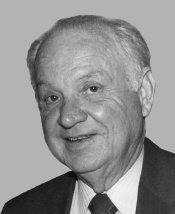
James Henry Quillen was an American politician serving as a Republican member of the United States House of Representatives from Tennessee from 1963 to 1997.
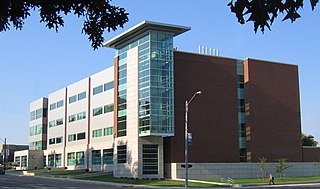
The University of Tennessee Health Science Center (UTHSC) is a public medical school in Memphis, Tennessee. It includes the Colleges of Health Professions, Dentistry, Graduate Health Sciences, Medicine, Nursing, and Pharmacy. Since 1911, the University of Tennessee Health Science Center has educated nearly 57,000 health care professionals. As of 2010, US News and World Report ranked the College of Pharmacy 17th among American pharmacy schools.

The University of North Texas Health Science Center is a public academic health science center in Fort Worth, Texas. It is part of the University of North Texas System and was founded in 1970 as the Texas College of Osteopathic Medicine. UNT Health Science Center now consists of five graduate schools with a total enrollment of 2,329 students (2020–21).
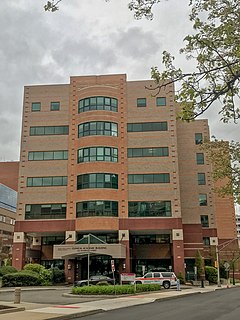
Rutgers Robert Wood Johnson Medical School is a medical school of Rutgers University. It is one of the two graduate medical schools of Rutgers Biomedical and Health Sciences, together with New Jersey Medical School, and is closely aligned with Robert Wood Johnson University Hospital, the medical school's principal affiliate.
The University of Illinois College of Medicine offers a four-year program leading to the MD degree at four different sites in Illinois: Chicago, Peoria, Rockford, and formerly Urbana–Champaign. The Urbana–Champaign site stopped accepting new students after Fall 2016 to make room for the newly established Carle Illinois College of Medicine.
The Tennessee Plan is a system used to appoint and elect appellate court judges in Tennessee. It is largely patterned after the Missouri Plan, and an earlier version in Tennessee was called the Modified Missouri Plan. At the next general election following a judicial appointment to the highest courts, and at the end of every eight-year term, voters' input occurs by deciding whether each judge shall be retained through a yes-no retention election.

The Tree of Hippocrates is the plane tree under which, according to legend, Hippocrates of Kos taught his pupils the art of medicine. Paul of Tarsus purportedly taught here as well. The Platanus in Kos is an oriental plane, with a crown diameter of about 12 metres, said to be the largest for a plane tree in Europe.
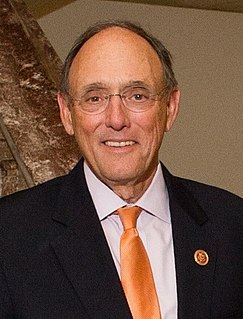
David Phillip Roe is an American politician and physician who was the U.S. representative for Tennessee's 1st congressional district, serving from 2009 to 2021. He is a member of the Republican Party. From 2017 to 2019, Roe was chairman of the House Committee on Veterans Affairs.

Humayun Javaid Chaudhry, D.O., MACP, FRCP (Lon.) is an American physician and medical educator who is president and chief executive officer of the Federation of State Medical Boards (FSMB) of the United States, a national non-profit organization founded in 1912 that represents the 70 state medical boards of the United States and its territories and which co-sponsors the United States Medical Licensing Examination (USMLE). From 2007 to 2009, he served as Commissioner of Health Services for Suffolk County, New York, the state's most populous county outside New York City. In 2016, he was listed by Modern Healthcare magazine as one of the 50 Most Influential Physician Executives and Leaders.
The Boonshoft School of Medicine is the medical school at Wright State University. It is located in Dayton, Ohio, and serves the Miami Valley region of southwestern Ohio.
Penny J. White is an American attorney and former judge who is on the faculty of the University of Tennessee College of Law. She was a Tennessee circuit court judge, a member of the Tennessee Court of Criminal Appeals, and a justice of the Tennessee Supreme Court before being removed from office in a judicial retention election. She is the only Tennessee judge ever to lose a judicial retention election under the Tennessee Plan.
Johnson City Medical Center is a hospital in Johnson City, Tennessee. It is a Level I Trauma Center and one of three major tertiary referral hubs of regional provider Ballad Health. It has 445 beds, plus 86 in the attached Niswonger Children's Hospital. It is also a teaching hospital for numerous institutions, including the adjacent East Tennessee State University James H. Quillen College of Medicine.


